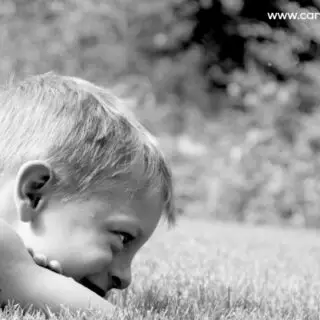I have finally come to terms with the fact that I am the parent of an angry child. In other words, my son often has emotional outbursts as he is trying to process big feelings.
I have read many books and articles on the topic. I am not an expert child psychologist or parenting guru but here are a few ideas on how to help an angry child I have gleaned from my reading.
The way I approach any parenting advice is a la carte especially when it comes to mental health. Honestly, I don't have one parenting philosophy. My philosophy, if I have one, is that I dip my hands into several respectful, positive, gentle, conscious parenting approaches and see what works for my child(ren).

How to Help an Angry Child
Be a Leader
Be a calm, gentle leader of your children generally but especially an angry child. They need this leadership. I have to practice this one a lot with deep breaths and other zen type approaches.
Choose Your Mountain
This piece of advice was given to me with my firstborn, early on. Yes, even with your angry child, ask yourself: “Is this the mountain you want to die on?”
If you can let it go without compromising your follow through on the matter (e.g. “stop pouring water out of the tub” and then deciding that you don't care all that much isn't okay.
Pre-empting the situation with “I noticed you like pouring water. Please keep the water in the tub. I will help you find ways to pour water tomorrow when you are not in the bathtub.”
Choose to Respond without Words
Use your eyes to signal to the angry child that perhaps he should consider stopping whatever behavior that might be causing an issue. Use your body to move closer to the child. If you can, offer a hug with your arms stretched out.
Be Present
Similar to the above, you can move closer to the child. You can put down your device and exhibit your will to pick up on that email later. You can remain in a room with him until he is able to calm down.
Problem Solve Together
Negotiate, collaborate, or come up with a solution together. So, once you understand the issue at hand (e.g. why your angry child doesn't want to eat cooked vegetables…because they are “too mushy”), say “I wonder if you and I can come up with a solution that…”
Connect with Your Child
Connect with your angry child by extending your arms for a hug, offered to stay near him when he is upset but giving him space, listen to him, look him in the eye, “do” something together.
Take a Few Minutes
Address the issue later. Consider that particular moment is not the right, or the most effective, time to discuss the matter. When minds are heated up, they don't often think straight. I can certainly relate to that overwhelmed feeling. How do you think your angry child feels?
Meditate
Meditation will help with many of these points generally. There are terrific meditation resources for parents and for children for that matter. Keep in mind that meditation does need a perfect time or place.
Additionally, you don't need to meditate for an hour. Often a few minutes is enough to help your body regulate emotion so that you can be a better parent, teacher, and caretaker.
Read Together
Read children's books together that ignite a conversation about these strong feelings.
Allow Issue to Simmer
Talk about an issue over time. So, the conversation might take a lot of thinking and feeling on your part and on your child's part. He may never have even thought about why he doesn't like vegetables. Give him time to voice his emotion and to come up with solutions.
Acknowledge Feelings
Janet Lansbury emphasizes acknowledgment in her writing again and again. It is stuck in my head. I particularly like this point because when your mind goes blank on how to respond in a particular situation, sportscast the situation: “You're upset. I can see that by your tears.”
Validate Feelings
I know as an adult I need my feelings validated even when I might not be acting as well as I should be. For example, say “You're upset because you don't want to eat your vegetables. You don't like vegetables. Eating foods you don't like is hard to do.”
Plan Ahead
Think about your child's “trigger points”, what makes him “explode” or get emotional? Notice without judgment so you can discuss the issue and come up with a solution together: “I notice that when I serve vegetables, you're not eating them. What's up?” (to borrow Ross Green's
Be prepared to handle the situation. Planning ahead is difficult, especially with younger children.
Books for Parenting an Angry Child
- The Explosive Child
by Ross Green
- No Bad Kids: Toddler Discipline Without Shame
by Janet Lansbury
- How to Talk So Kids Will Listen & Listen So Kids Will Talk
by Adele Faber
- The Whole-Brain Child
by Daniel Siegel
Related Parenting Articles
I hope you found this article helpful to you!
Marnie








